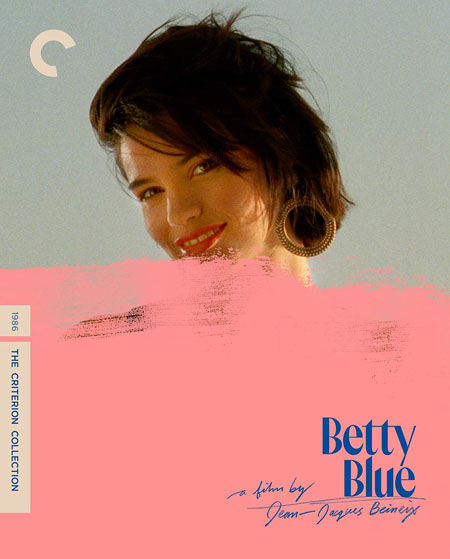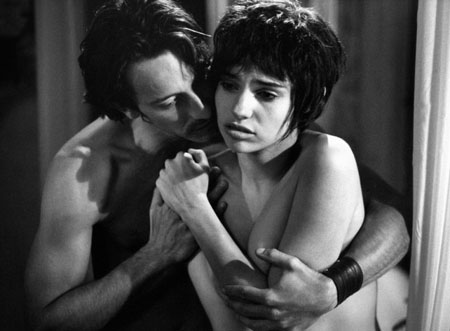
“SEX,
EYES, & MENTAL ILLNESSâ€
By
Raymond Benson
What
made the 1986 French picture, Betty Blue (also called 37° 2 le matin, aka 37.2°C in the Morning) so
striking were three things—the explicit sex on display, the mesmerizing eyes of
lead actress Béatrice Dalle, and the film’s frank depiction of mental illness
and its devastating effect on a relationship.
Director Jean-Jacques Beineix had burst
onto the scene with the superb, quirky, and new New Wave crime picture, Diva
(1981) that embraced not only the French New Wave of the early 1960s, but
the early 1980s pop New Wave of music and visuals that were exploding in all
mediums at that time. Diva was a critical and commercial hit with
Western audiences, although Beineix’s follow-up, Moon in the Gutter
(1983), was not. The filmmaker bounced back, though, with Betty Blue,
which received a deserved Oscar nomination for Best Foreign Film.
Based on a popular French novel by
Philippe Djian, the story concerns a writer named Zorg (Jean-Hugues Anglade)
who works various odd jobs to support himself while he struggles to pen a
novel. He meets and falls in love with the fiery, unpredictable, and incredibly
sexy Betty Blue (Dalle). Throughout the tale, we witness the ups and downs of
their relationship through the couple’s nomadic moving around France, meeting
and befriending colorful characters, getting into fights, and slowly spiraling
toward tragedy. This is because Betty is seriously mentally ill (probably
bi-polar, although that term was not much in use in the 1980s). Betty’s mood
swings can be violent and shocking, and it’s a challenge for Philippe to
continually cover for her, as well as care for the woman and keep her safe.
Both Anglade and Dalle deliver
courageous and dynamic performances, and Jean-François Robin’s cinematography
exhibits vibrant colors and painterly images. This is a gorgeous-looking
picture, made even more attractive by the (often full-frontal nude) physicality
of the two leads. While the picture is an exquisite examination of a passionate
love affair, it’s also a disturbing scrutiny of a mental affliction that few
people understood in those days.
When Betty Blue was first
released, it was a two-hour movie. Beineix released a “director’s extended cutâ€
in 2005 that runs three hours—and that is the version presented in the
Criterion Collection’s new Blu-ray release. It’s curious why Criterion did not
also include the original shorter cut, for I’m not sure the extra hour of
runtime added anything of special value.

The high-definition digital
restoration, approved by Beineix, is terrific, though, and it comes with an
uncompressed monaural soundtrack (and the quirky musical score by Gabriel Yared
is a highlight). There is a new English subtitle translation.
Supplements include an hour-long
documentary on the film from 2013 with Beineix, Dalle, Anglade, associate
producer Claudie Ossard, DP Robin, and composer Yared; a vintage featurette on
the making of the picture that includes an interview with original novelist
Djian; Le chien de Monsieur Michel (“Mr. Michel’s Dogâ€), a short film by
Beineix from 1977; a vintage TV interview with Beineix and Dalle; Dalle’s
screen test; and trailers. The booklet contains an essay by critic Chelsea
Phillips-Carr.
Betty Blue may not be the perfect date movie, but it does serve to
illustrate in believable and visceral tones a passionate but volatile man/woman
relationship that will fascinate any lover of cinema.